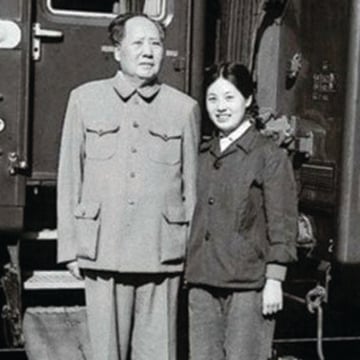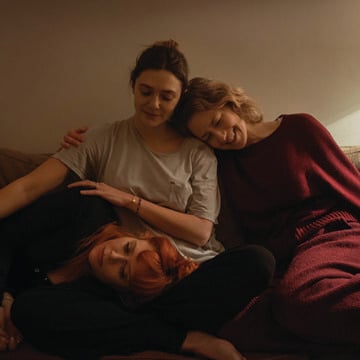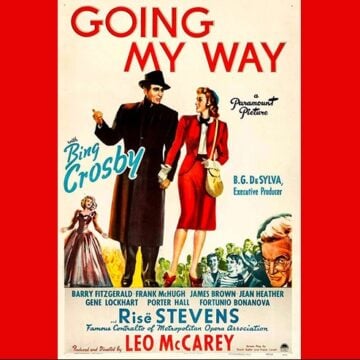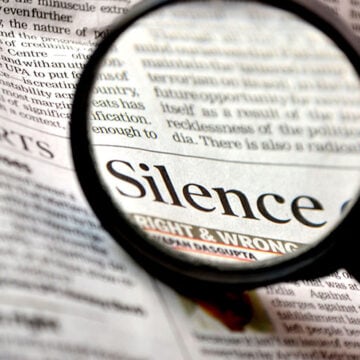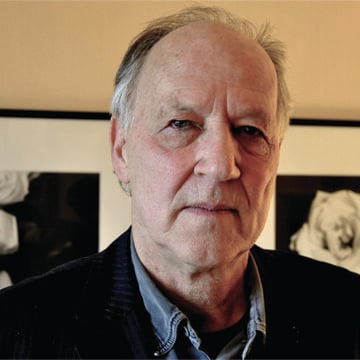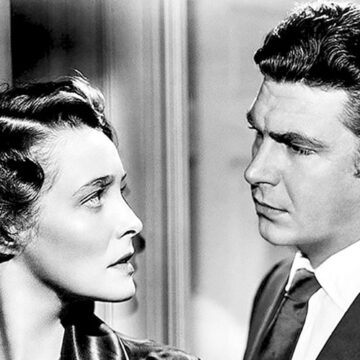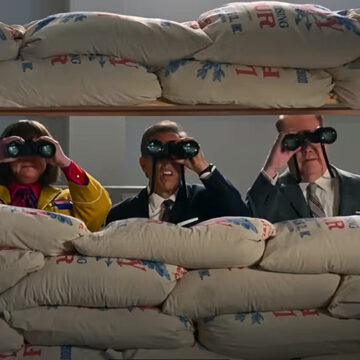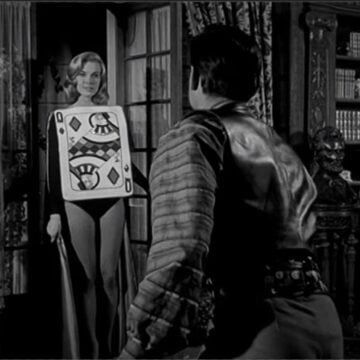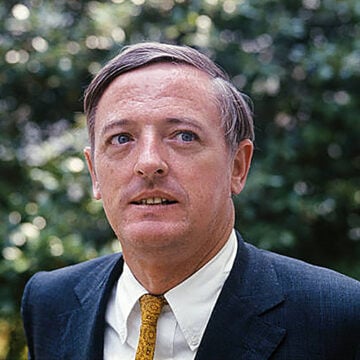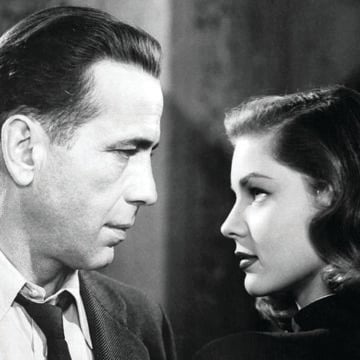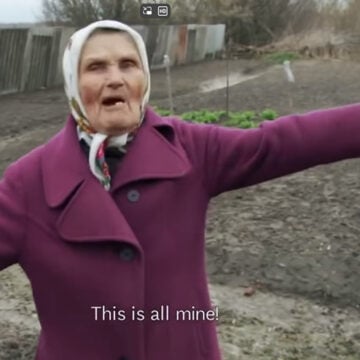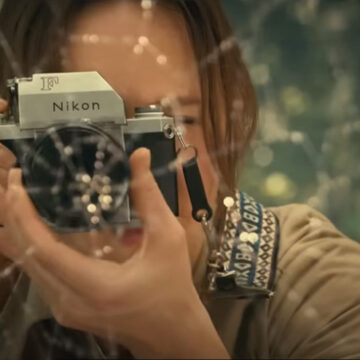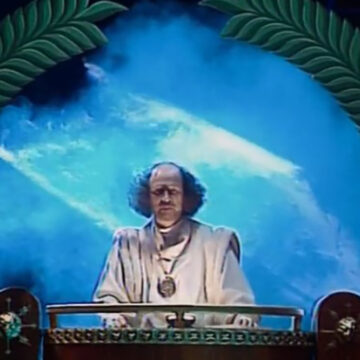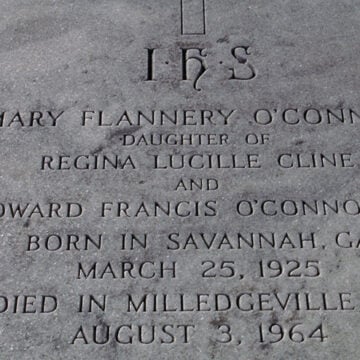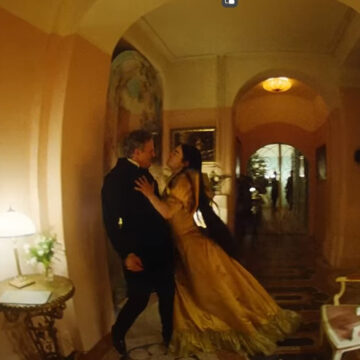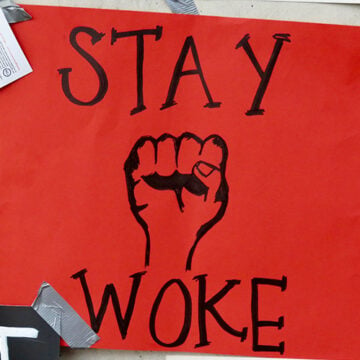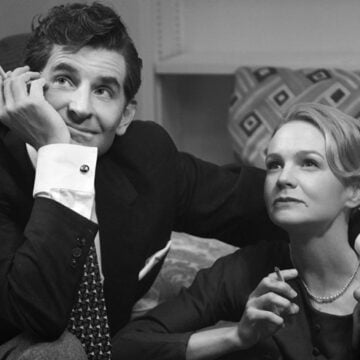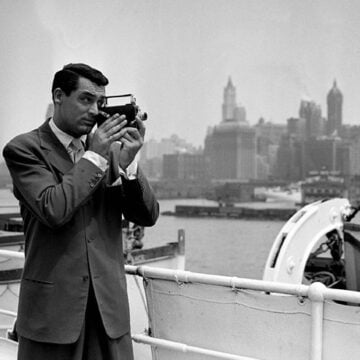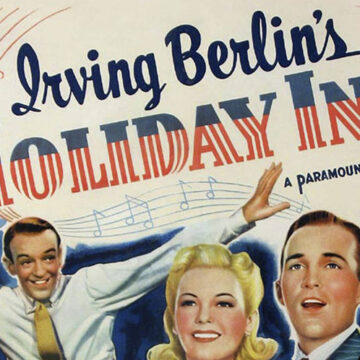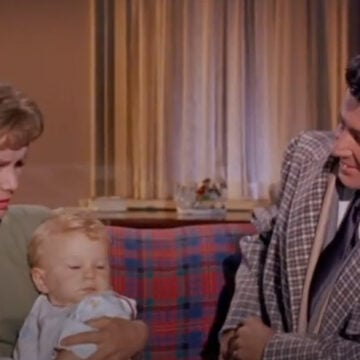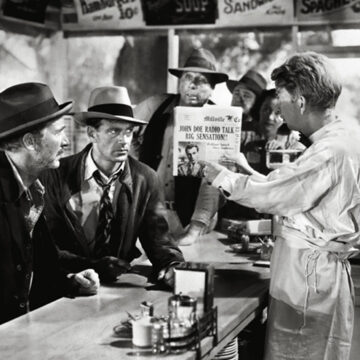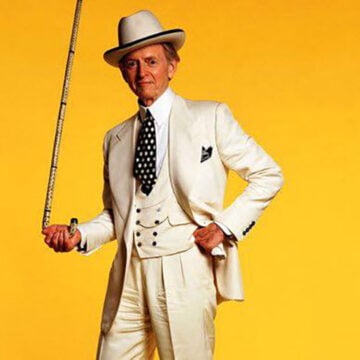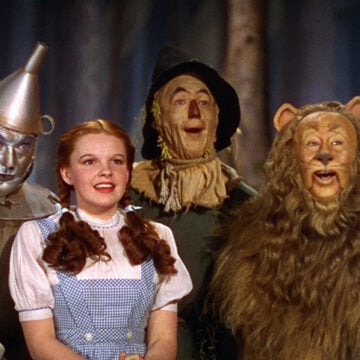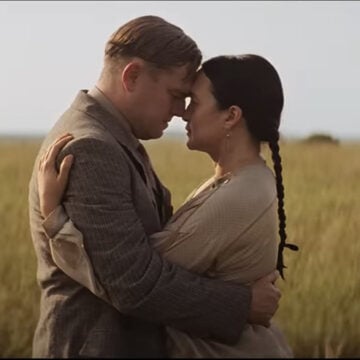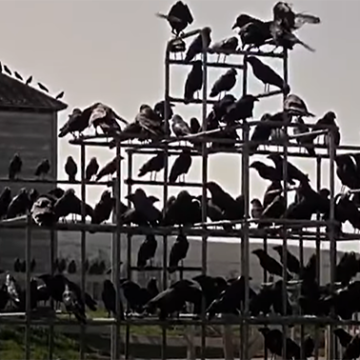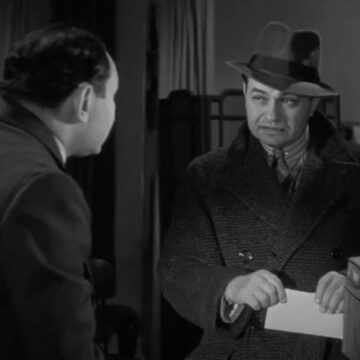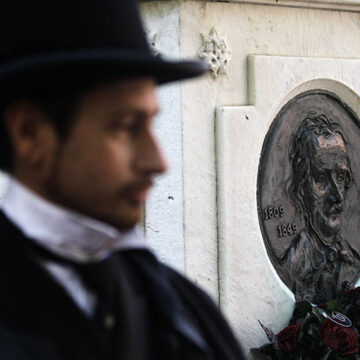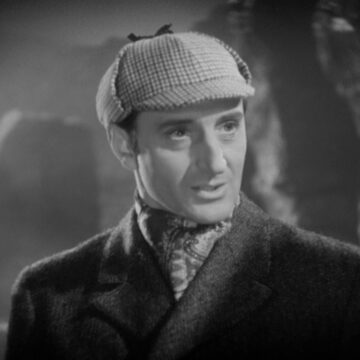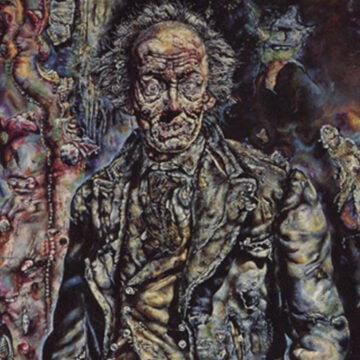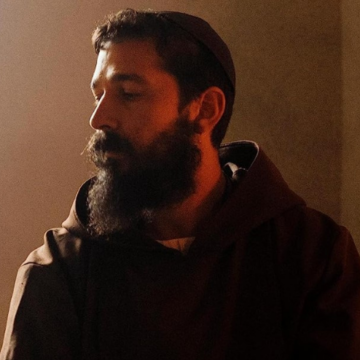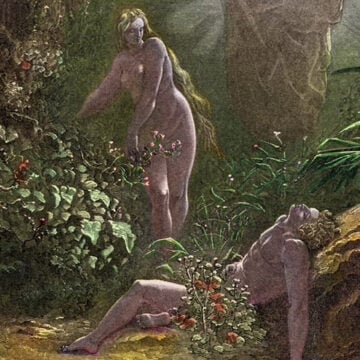'The Devil and Communist China,' outlines the truth about the Chinese regime and deserves great attention not merely from a historical point of view but also from a religious one.
Author: Emina Melonic (Emina Melonic)
Signs of Life
'His Three Daughters' explores the tension between three sisters, who have little in common aside from family, reunited by the pending death of their father.
Bing Crosby’s Irish and American Christmas
While much of the America at the heart of Bing Crosby’s famous Christmas movies seems lost, we should remember what is fundamental.
The Domestic Cruelty of Desire
Last Summer tells the story of Anne, a lawyer and spouse with a seemingly idyllic life, who becomes a predator of sexual domesticity when a long-lost family member resurfaces.
Seeking Silence
Our constant and artificial encounters with devices are keeping us from the more meaningful encounters with God and other human beings.
A Jolt from the Slumber of the Self
Werner Herzog, in his new memoir, turns his attention to himself, and singles out essential elements of his life that have given birth to ideas, perceptions, and films.
Who You Talkin’ To, Robert De Niro?
The actor’s self-indulgent rant in New York is the latest example of the all-too-human temptation to garner admiration through performative outrage.
Reflecting American Dreams and American Nightmares
Elia Kazan’s “A Face in the Crowd” (1957) takes the audience along for a ride that ends up in front of a mirror.
Meme World Syndrome
The feedback loop of our very online “discourse” knows no end and it is rendering our society insane.
The Imperfect Nostalgia of ‘Unfrosted’
Jerry Seinfeld’s otherwise genius combination of childhood nostalgia and comedy is marred by a lack of political temperance that deflates the experience for at least half the audience.
Recognizing the Enemy Within
John Frankenheimer’s “The Manchurian Candidate” illuminates timeless and timely truths about the relationship between freedom and authoritarianism, as well as the that between illusion and reality. It’s a perfect film for our times.
Why They Want Us to Eat Bugs
The push for the eating of bugs is the epitome of rationalist thinking and the destruction of the sacred.
Biohacking Into Oblivion
A question biohackers ought to ask is: How much time have I lost by attempting to become younger and live longer?
An Inept Takedown of William F. Buckley
PBS’s “Incomparable Mr. Buckley” offers a left-wing caricature of a complex man and the conservative way of life he advocated.
Exploring Beyond the Internet
The only certainty is that uncertainty is one of the best prompts for asking what it means to be human.
The Quintessential Hollywood Affair
'Bogie & Bacall' explores the dichotomy between the image of a perfect Hollywood couple and the dark reality of one of the most famous marriages in Hollywood.
To Complain or Not to Complain
Now more than ever, Americans need to recognize the difference between childish whining, which should never be indulged, and the necessary kind of complaining that’s required of citizens when something is evil or unjust.
Happiness in Chernobyl
The lives of the babushkas in Chernobyl are evidence that God exists everywhere, and that while destruction can often reign supreme, creation, however small, affirms our propensity for the good.
The Illusion of Privacy
We can’t live in the past, but we should minimize our overexposure to online technology.
Dakota Johnson’s Honesty and Madame Web’s Failure
The actress’s frankness about her regrets over participating in this turkey of a film is a breath of fresh air. It’s a cause to be hopeful that studios will learn that there are penalties for choosing to relegate art to the algorithms.
O Comedy, Where Art Thou?
The censorship regime has lowered the bar on comedy so much that it’s not even funny.
Raëlian Melodrama Courtesy of Netflix
The Netflix formula for documentaries produces an alien-infused melodrama that falls flat and reveals little about its bizarre subject.
Flannery O’Connor and Shadows of Evil
O’Connor understood the complicated relationship between tragedy and joy was related to the inevitable confrontation of good and evil. Freedom is embracing the metaphysical surrender to the knowledge that we are not the beginning or even the end of things.
Shiny, Happy People
Like death, suffering is inescapable. It represents the burden of being. But too often today, Americans are trying to escape it with therapeutics and chemicals, neatly packaged as happiness in a bottle.
Don’t Blame the Patriarchy for ‘Barbie’ Snub
The Oscars have been a den of meaninglessness and identity politics du jour for so long now that it really shouldn’t matter who gets nominated and who gets overlooked.
Gratuitous Grotesqueness in ‘Poor Things’
Yorgos Lanthimos’s Poor Things is now celebrated in Hollywood but, in truth, it is just another feminist revenge story to which creativity comes to die.
Against Political Clichés
Being human is something far more complex and beautiful than the habit of ideological repetition can show us. We miss that if we submit to the current morphing of reality in the service of clichés that condemn us to an inanimate fake life.
Scenes from a Marriage
Bradley Cooper’s Maestro offers an artful examination of questions and contradictions posed by a marriage that was full of them.
Looking for Cary Grant
A new series about the quintessential Hollywood heartthrob reveals the dangers we encounter when we hide our true identities so well, they become forgotten—even to us.
The Magic of Memory and ‘Holiday Inn’
Today we face a serious bout of historical amnesia, be it in the collective sense or as individuals. We all desperately need some connection to the past. Films like Holiday Inn give us an opportunity to become custodians of Americana.
The Life-Affirming Song and Dance of ‘Bundle of Joy’
Norman Taurog’s Technicolor comedy-musical Bundle of Joy (1956) is a radical film that makes the use of Christmas joy to hold up the life-affirming and true love of a mother, father, and grandfather as both the pinnacle of Christian morality and the Christmas spirit.
The Creation of an American Everyman
Frank Capra’s film, Meet John Doe, makes clear—especially as Christmas Day approaches—that man is not the measure of all things. It is only when God’s wisdom is the foundation of man’s being and existence that we can live authentically in both words and deeds.
A Not So Radical Documentary
Ironically, a new documentary about Tom Wolfe, “Radical Wolfe,” lacks the radical thrust it laments is missing today and that Wolfe himself had.
The Good, the Bad, and the Grateful in ‘The Wizard of Oz’
This Thanksgiving we’d do well to revisit this American classic. “Don’t lose your goodness!” this film firmly instructs us.
Human Weakness in Martin Scorsese’s ‘Killers of the Flower Moon’
There is a clear message in this film: Weakness is evil. But the cacophony of voices and perspectives from which Scorsese draws, demonstrates an ironic weakness in his making of this film.
Bird Naming, Nature Taming, and Reality
As Alfred Hitchcock’s “The Birds” (1963) demonstrates, the exhilaration and beauty of nature can quickly turn to horror. Nature doesn’t care what we call it.
‘The Whole Town’s Talking’ and Edward G. Robinson’s Case of Mistaken Identity
There isn’t one wasted moment in this tightly directed and acted 1935 John Ford screwball comedy featuring Edward G. Robinson and Jean Arthur.
Moral Reckoning in ‘The Masque of the Red Death’
Edgar Allen Poe’s famous short story is a memento mori reminding us that we must one day face our Creator.
The Ghost of Sherlock Holmes
In Sidney Lanfield’s 1939 production of The Hound of Baskervilles, we have a perfect ghostly reflection for spooky October viewing.
The Faustian Bargain of Dorian Gray
Albert Lewin’s 1945 film, The Picture of Dorian Gray, is the perfect selection for this season of reflection about our mortality and the virtues we need to cultivate to make life worth living.
Longing for the Sacred
Though his portrayal of the Catholic saint is superficial at best, Padre Pio director Abel Ferrara's at least accomplish something, accidentally, by leading the film's star onto a redemptive path.
Being Human
Questions of transhumanism have been the subject of many dystopian and futuristic movies, but our fascination with the subject says more about ourselves than the machines.
When Mules Go Ballot Trafficking
Dinesh D’Souza’s 2000 Mules offers an intriguing, if depressing, look at a massively well-organized system of vote fraud apparently executed during the much-disputed 2020 election.
